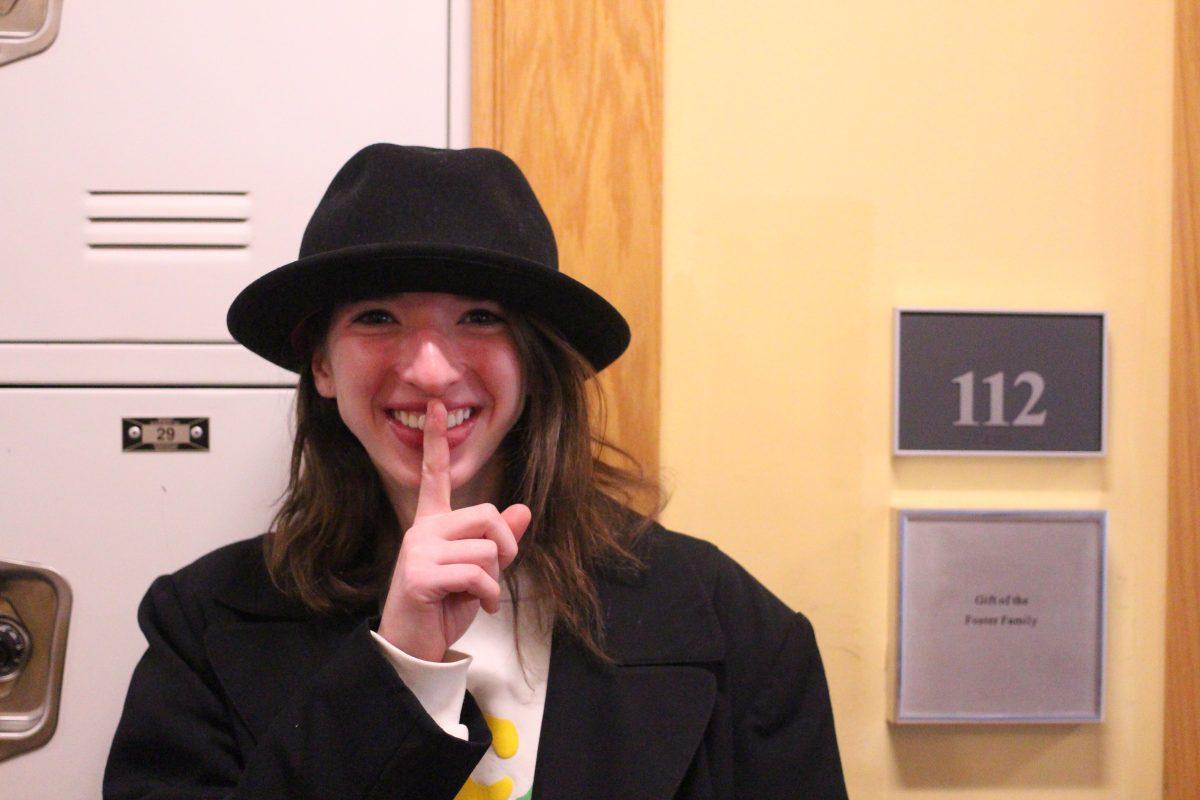
This past week, I entered the most feared classroom at Nobles: Shattuck 112. Every Tuesday from 3:15 p.m. to 4:00 p.m., delinquents around the school gather in one room to repent for their misdeeds.
I entered detention under the guise of phone usage during assembly, giving me the perfect cover to see what was happening behind closed doors. What I discovered while serving my time will shock you.
While detention officially starts at 3:15 p.m., I tried to set a good example for my detained peers by arriving at 3:10 p.m. I had hoped that arriving at this time would help guarantee a front-row seat for the next 45 minutes of my day. Upon arrival, I was stunned to find an empty room. For the next three minutes, I worried that I was the only lawbreaker at Nobles–a lone wolf.
Luckily, my fears were quelled as the rest of the detention-goers (who will remain anonymous for this article) filed into the classroom. Let the games begin. As our reflection sheets were handed out, the 2,700-second sentence began.
The first three minutes went by quickly. I wrote down my thoughts as they came to me, and I entered a zen-like state that even yoga with Ms. Harrington could not have achieved. Unfortunately, this mindless state ended as abruptly as it started, and now I stared bleakly at the daunting 42 minutes of conscious hell in front of me. Why did I sign up to write this article?
The walls started creeping in on me, and I realized that the shutters on the windows looked awfully similar to bars on a jail cell. After a few more minutes, my vision started to blur between images of me lying on my cot in a cold, stone cell in block 9 in the local juvenile prison and being slumped over my desk in Shattuck. Is this jail? Was I destined to spend the rest of my life within these four walls? On the clock, it said 3:19 p.m.; however, my watch said 3:21 p.m. Was this timing discrepancy really just a ploy to force students to spend as much time as possible in this jail cell classroom?
“The walls started creeping in on me, and I realized that the shutters on the windows looked awfully similar to bars on a jail cell.”
As panic seized me, I realized that I needed to be more rational. Taking deep breaths, I reminded myself that detention was for the betterment of the Nobles community. After all, the administration is so accommodating that they allow students with accommodations 50% more time to be able to fully absorb the gravity and impact of their crimes. This means that they can spend an hour and seven minutes in detention.
This strategy helped me through for 15 minutes, and for those 15 minutes, I don’t know how else I would’ve survived. I just kept repeating to myself, “Get busy living or get busy dying.” However, I slowly began to realize that the world outside this room was changing and moving on without me. Would my friends and family even remember me after the time I had served?
Staring intently at the vent in the ceiling, I wondered if I could slip through it while the proctor’s back was turned and make a run for my freedom. Should I risk the consequences? But then, my deeper morality reminded me that I needed to stay. I could not leave my fellow comrades alone and defenseless.
With five minutes (or five years) left on my time in detention, I felt a strong affinity with my siblings of crime. How could I leave my peers who truly understood what I had gone through?
“I could not leave my fellow comrades alone and defenseless.”
At 3:59 p.m., I could see the light at the end of the tunnel. I knew that I would make it out; I had to. Holding my breath, I waited for the clock to change, silently willing my torture to be over. The clock struck 4:00 p.m., and I rushed toward my peers in the classroom, ready to rejoice. But, to my utter shock, they simply gave their paper to the teacher, walked out of the classroom, and went on with their day. I expected a hug, some tears, and, at the very least, a fist bump. But everyone walked off as if these past 45 minutes meant nothing to them. Did I learn anything from my time of reflection? Yeah. Detention sucks.
